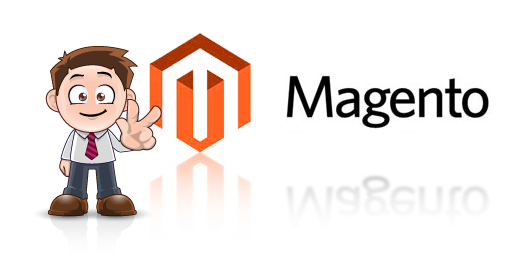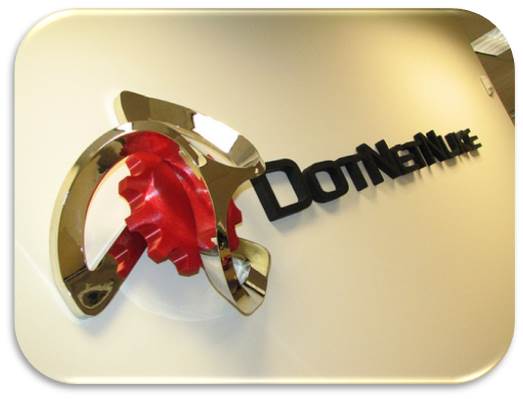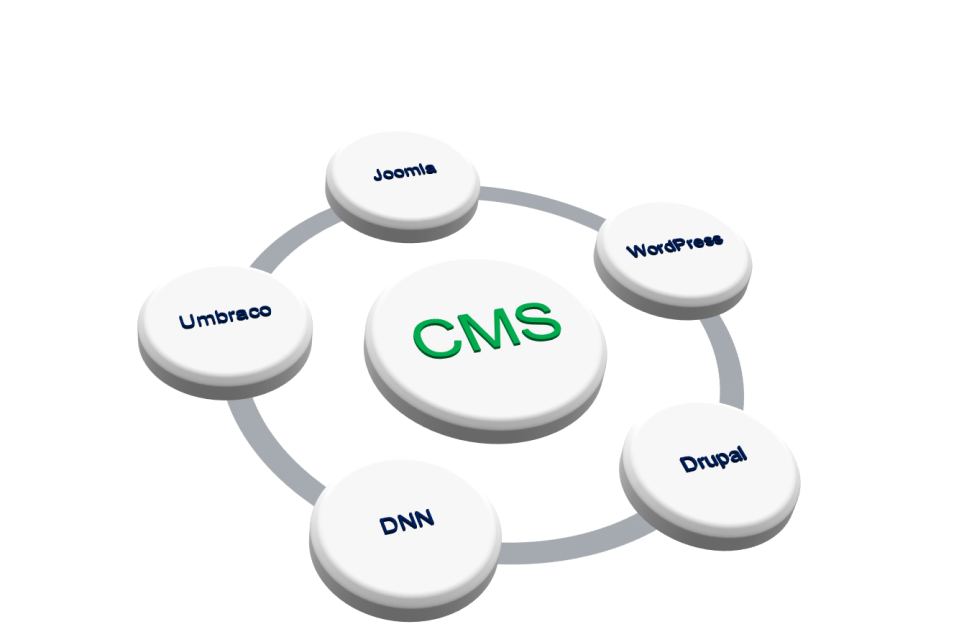Tips to Optimize Your Magento E-Store for Mobile Devices
Fast speed and high performance has become a crucial factor that helps to boost the website ranking and also convert better. Magento 2 is the most popular e-commerce platform that is preferred by users because of its rich features, functions, flexibility and customization option.
Such a level of performance always comes at a price and poor performance of the store is the main complaint from developers and store owners. There are various means to optimize the performance of Magento 2 store for mobile devices to leverage its out of the box capabilities and offer a compelling online experience to the customers and drive sales.

Here in this blog, I will share with you some important tips that will help you to optimize your e-store for the mobile devices.
Inspect Every 3rd Party Extensions That are Installed
Magento 2 core is written by experts and so there is nothing much where improvements can be made. But this is not the case when it comes to extensions that you can buy or even download for free and many of them can really slow down your site. This makes it essential to perform a 3rd part extension audit. You can turn the modules on and off, clear the caches and check if there is any change in the website’s speed. In case if turning off an extension increases the site speed, then it is time to consider the extension. You can contact your plugin vendor and discuss about the problem.
Create Accelerated Mobile Pages:
AMP is an open source technology that is introduced by Google and comprises of a set of scripts and rules. It helps to reduce the loading time of the web pages, thereby increasing the website performance across devices. Implementing AMP is nothing complex and when it is integrated with your Magento store, the web pages of the site will get a reference to inform Google that the site is AMP friendly and it will be re-indexed and the pages will be available by means of Google Cache.
Mobile Front End Optimization:
Front end optimization is another very important task that needs to be carried out to increase the website speed. Implementing a light website and responsive template will enhance the performance of your Magento site on mobile devices. For that you need to include some of the following:
- compress and reduce the JavaScript files
- check all the website blocks and remove those that you don’t need or even use
- enable page caching by using tools like Magento Full Page Cache
Deactivate JavaScript Bundling:
Grouping JavaScript files will help to decrease the number of browser requests to the server. Based on the type of HTTP protocol used, the JavaScript bundling feature can have a negative impact on the website performance. In case you activate JS bundling, it would create a huge file with the JavaScript code and the file size would definitely impact the page load time.
Optimize The Images:
Your ecommerce website is sure to have lots of product images and it is very important to compress and optimize all the images so as to have the lowest page weight possible. There are various online tools that can be used to compress the images. Most CDNs support the image optimization and in case you have a limited budget, then you can try the page speed server module by Google. This helps to compress the images easily and also does other speed optimization tricks.
Choose a Good Hosting Company:
The hosting plan that you choose also plays a vital role in the overall performance of the site. You can never have a fast Magento 2 website on a cheap VPS. The platform has some specific technology requirements. Ask your hosting service provider to offer you the best plan that can boost your website speed.
Make browser fast and secure with HTTP/2
Magento 2 can co-exist with HTTP/2 out of the box, however, it should have the e-store pages server via SSL and the hosting server should support HTTP/2. This is the next generation hypertext protocol and is means for secure and fast browsing.
“Thus to conclude, fast and pleasant mobile experience is a top priority for the retailers who are willing to capitalize on m-commerce opportunities. The above tips will surely help to improve the way Magento website performs on any mobile device.”
The Importance of Liquid Content in DNN Websites
Building a CMS website is one of the most important factors to consider if you have plans to expand your business. With different CMSs available in the market, DNN or DotNetNuke is a feature rich and cutting edge CMS that is built on the ASP.Net. It is very important to publish updated content easily on your site so as to keep your audiences engaged and well informed about your business.
DNN has come up with Liquid content, which is a structured content micro service that helps to manage the different content items that can be presented on the webpage or on a native mobile app.

Liquid content provides “out of the box” publishing capabilities that goes beyond websites and intranets. These contents are memorable pieces that visitors find very interesting and become highly motivated to share them via social networks like Pinterest or Twitter. With more and more devices and channels being used by the users, marketers are in great need of a CMS that helps to create content once and easily publish it on any channel. This makes it easy for them to reach out to the customers any time.
Liquid Content has Three Types of Components:
Visualizer: This defines how the content is styled and formatted. Just like a container is used to format a module, the visualizer is also used to format and style the webpage content.
Content type: It helps to define the combination of configuration and fields of the content
Content item: This includes the individual pieces of content.
DNN offers new liquid content that allows the marketers to present the content to the customers whenever they need it. Marketers need a CMS platform that is fluid and adaptable as the consumption patterns can often shift from website to IoT. Content management is now considered as a crucial component for many solutions that offer support to digital business strategies. DNN development’s liquid content allows the organizations manage the content irrespective and independent of any layout.
The “omnichannel” refers to the unique capability of DNN to go beyond the conventional CMS and publish on various channels beyond the websites. In order to help the users, understand the effectiveness of the content across various channels, liquid content considers analytics data that is specific to each channel.
How Liquid Content Helps Marketers and Managers?
Managers:
They can now easily configure the permissions and settings in DNN’s Liquid content and this allows business users to manage the content without any concerns that any errors can break the site. Since Liquid content is explicitly designed for specific user flows, IT managers don’t have to spend much of their time in training the users and they also don’t need any specialized IT professionals to write codes for the basic steps to publish the content.
Marketers:
Usually marketers face various issues that only few software can solve for large enterprises. It becomes a huge investment and also needs to hire expert developers or work with any partner. Liquid content is tailor made for the middle market and is much more affordable.
It empowers the business owners to leverage omnichannel publishing that needs no programming skills. Liquid content also provides a drag and drop user interface for the activities that need a developer to implement in competitive products.
Ecommerce Marketing Experts Talk About AI Tools That Can Make Your E-Store Smarter
The first thing while creating your ecommerce store is that if you want it to be successful, you need to ensure that people know it exists. And that is the reason why marketing is essential for startups, especially those that are using the ecommerce model. With more than 1.3 billion sites on the net, there is a lot of competition for traffic and only effective marketing strategies can make your site stand out, entice the customers and also start generating the revenue to become a thriving company.

Though every startup doesn’t have a huge budget to pay for marketing, but a smart strategy or doing something out of the box can definitely help. So if you are looking for interesting ways to boost conversion, and also reduce the time and cost, then know how Artificial Intelligence can help you attain your goals.
Where can you use AI tools in ecommerce development for better results?
User experience:
Shoppers often look for a great user experience whenever they shop online. Machine learning can help them with the best in class experience as it helps in designing a brand new site or even add smart widgets to your existing one. Since personalization has become a significant factor to attain success, it would maximize the ROI. Creating pages that do not offer a great experience would simply eat away the marketing dollars with a poor conversion rate. Effective tools that you can choose to use:
- ChoiceAI: It helps to create personalized landing pages and real time banners. In order to gain popularity and drive sales, retailers often offer discounts and promotions. Choice AI helps to generate more sales with personalized experiences rather than offering heavy discounts. The algorithm predicts the preferences of the shoppers in real time and helps to create dynamic content for your store.
- B12: This is a new way to build your website from scratch. The friendly robots help to draft your site with the inputs and the designers help with various suggestions. This helps to create unique style and designs and it also makes quick updates possible.
Marketing and analytics:
Many ecommerce businesses are using Artificial intelligence in various marketing subsections like user identification across varied devices, Ads personalization, predictive analytics and etc. Some tools for ecommerce stores are:
- Wacul-AI: This offers user friendly proposals and solutions for website enhancements. You can connect Google Analytics in easy steps to get weekly or monthly reports. With these actionable insights, you can enhance your website by leading the data provided to you about your customers.
- NeoWize: This helps e-store owners to access your shopper’s behavior data and then transform them into actionable insights. The solution helps you in managing the marketing and inventory.
Incentives and predictive pricing:
AI can add a dynamic layer to your ecommerce store by helping you understand the user behavior and changing the product price in real time. Some advanced tools to consider are:
- Personali: It helps to create personalized incentives for the shoppers depending on the behavior of the customer and allowing to perform targeting shoppers with personalized incentives, level and experience in real time.
- Granify: This helps to monitor the shopper’s behavior in real time and the decision engine predicts the sessions when you may lose your buyers and how to convert them. Customized messages are shown according to the analysis of the software. It is suitable for enterprise segment and works with all e-commerce platforms.
Visual search:
Shoppers often search items in the catalog by taking a picture on their phone. AI helps to search for similar products based on the texture, shape. Color and etc. The tools help fashion stores a lot with a large catalog:
- ViSense: This tool offers intelligent visual recognition and offer search by image, out of stock alternatives, automated product tagging and etc. It enables publishers to quickly monetize all their visual content, videos and images by analyzing visual attributes.
AI is the latest revolution and there are many useful application of AI that may help your ecommerce business to go a long way. The analytics offered by the AI tools aid business owners to do various jobs efficiently and smartly.
What Are the Things That You Should Consider While Investing in Your CMS Platform
Customers and audiences often demand to engage with you via whatever device they have at any moment. And they also expect to have a great experience that is increasingly personalized. The information about your business needs to be made available to the viewers via mobile phones, tablets, and also through various channels and devices.
And to meet the expectations of the users and to keep them engaged, you need to choose a CMS that fits your business needs.

But what kind of technology do you need and is it possible to predict whether it will work long term or soon become obsolete?
What to look for:
Developing and managing content and digital experiences are the most complex affair in case you are aiming for a customer centric approach. here are the key parameters that you should take into consideration while choosing a CMS that will offer great support to your business through the transformation.
Managing experiences:
Nowadays, digital experiences are not limited to your website only, your messages are read by your customers via multiple channels and devices. the most significant challenge for enterprises is to create a consistency throughout all the touchpoints of a customer’s journey. Your organization may not be ready for a complete personalization, and you might consider whether to choose a CMS having tools for multi-channel, device, reporting and etc.
While managing your customers, it is important to keep them engaged on his or her own terms for better business, and this means that your CMS should support overall customer experience management and also ensure a consistent experience on various devices.
Multi device strategies:
Investing in a new CMS without considering whether it can support multiple devices would be a great disadvantage. Getting geared up for all the devices that are available may be too big, but your CMS should support customer experience management with respect to various mobile devices, tablets. When choosing a CMS, look at how it can support this and whether the backend allows you to track, develop, assess, test and preview on multiple devices.
Integration with key business processes
With business growth, the requirement also keeps on changing and it is important that your CMS development allows you to integrate latest functionalities and services without having to change your existing system. It is by opting for extensibility that you can make it very easy to upgrade to the entire platform and also add new applications and enhance the older ones. Your Content Management System should be able to create personalized and engaging experience, and have access to CRM, email campaign management tools, analytics, social media campaigns, automation solutions and etc.
Multi-channel publishing:
Most people want to enjoy the same experience on their personal devices as that with enterprise systems. They expect similar usability and work environment and it is here that your CMS should be able to get the job done effectively without any dependency. With customer experience management becoming an essential part of all business, the system that is used to manage the experiences becomes more complex, increasing the need for user administration and easy to use templates and dashboards.
Analysis and reporting tools
It is very important to keep the content updated and for that proper structure has to be maintained. Choosing a CMS will help to make it easy for the administrators to organize the content and even assign roles to the users. Most CMSs provide basic quality management tools like basic SEO, link checking and reporting. Based on the organization’s digital maturity, the tools in the CMS can be more or less sufficient.
Conclusion
Your IT team will always be keen to find a CMS platform that works with the rest of the system and also fits the skills of the staff members. On the other hand, marketing and business might be looking at what other competitors are doing for success. In order to be successful, you need to adopt a unified approach that aligns with your efforts and helps to choose a platform to meet your specific business goals.
“Choosing a CMS is complex as it involves various skills and processes, so before investing in a CMS, you should have a clear idea of why you want to invest in the new CMS platform.”
